Domi Miranda joins UXRSWe are excited to have Domi join the team as a Graphic Designer1. Tell us a little bit about yourself.
I’m an Ecuadorian artist, currently living my best life in Mexico with my husband and our beloved cats. I love anime and my favorite band is Epik Hig 2. What attracted you to get involved with UXRS? I’ve been pursuing the UX world for quite some time and UXRS content on social media definitely piqued my interest. The research and analysis, events, and community have all helped me out to do better practices in my own work. 3. What was your favorite thing about UXRS and why? My fav are definitely the events. The opportunity to discuss further about the UX community and the direction of itself with such great specialists is everything for us, young designers. 4. What would you like to see in UXRS's future? I’d like to see more events and dynamic content, as I’ll be working on animation and motion graphics myself for the organization, I do hope to increase our engagement. Let’s become the top go to reference for the UX community. Learn more about Domi on LinkedIn.
0 Comments
Emily Shares Her Top 5 ReadsOur UXRS Speaker Liaison lists her favorite UX booksBy Emily Carmody
As a behavior analyst who made a career transition to UX research, I thought I would share the 5 books that helped guide this career change. The below books informed and helped me understand how I can apply my knowledge of behavior analysis to the world of UX, build and maintain workplace relationships, relationships with users and stakeholders, and understand how behavioral and UX research fits into a corporate or enterprise setting. How to Win Friends & Influence People in the Digital Age by Dale Carnegie & Associates In the fast-paced world we live in today, this updated version of Dale Carnegie’s original publication from 1936 provides readers an understanding of how Carnegie’s principles regarding listening, sincerity, and affinity (to name a few) still apply in a digitized world. With speedy communication at our fingertips and remote work lessening our face-to-face interactions, we must understand how to utilize the technology available to us so we can make meaningful connections with our users, co-workers, and within personal relationships and Carnegie’s principles do just that. Engaged: Designing for Behavior Change by Amy Bucher In this book, Amy Bucher discusses the application of behavior change science and behavior analytic principals to the design and development of digital products. Amy provides a thorough explanation of behavioral terminology (target users, target behaviors, motivation), the importance of motivation, and provides the reader with an outlined behavior change design process that she markets to novice and experienced UX-ers alike. The Behavior Change Design Process includes:
UX Research: Practice Techniques for Designing Better Products by Brad Nunnally & David Farkas This was one of the first books I read when first learning about UX Research and is a text I still reference to this day. This book provides 4 sections to help you understand the importance of UX research and what it is, the planning and preparation of research, facilitation, and analysis and reporting. Within these sections you get insight into various research methods, research coordination, and soft skills that are crucial when working with users and/or stakeholders. There are information and reminders in this book that can be useful on your 1st or 100th research project. Verbal Behavior by B.F. Skinner Understanding human behavior is at the center of good UX and in this book, Skinner discusses how some human behavior (what people say, write, gesture, and think) do not operate on the environment directly and require a separate analysis. While this is a complex behavior analytic work, this book can help UX-ers understand how consequences impact human behavior. Lean UX by Jeff Gothelf & Josh Seiden Coming from an academic, clinical background where research and evidence-based results were given focused timelines; learning how to fit high-quality research in a fast paced corporate or enterprise setting was a wakeup call. Lean UX provides insight into how you can merge high fidelity research within a lean or agile setting by trimming down the fat within your process and ensure business needs are met by making researchers, designers, product managers, and software engineers work together rather than in isolation. Looking Back at 2022Jen Blatz, president of UXRS shares her fondest memories of the last yearI know that in year’s past, I have talked about how much UX Research and Strategy (UXRS) has grown, and 2022 is no exception. Let’s take a look at some of the highlights of the fantastic things that UXRS did in 2022. Events UXRS continued to thrive online in our events, and we had 14 events, showcasing a number of speakers and topics. UXRS were the Long Beach representative of WIAD (World Information Architecture Day) in March and the Dallas representative of WUD (World Usability Day) in November. You can check out the “Past Events" section of the UXRS website to see the recordings, photos and slides of most of our events. Speakers Our speakers represented a number of industries including finance, government, UX agency, market research, software, information technology, social media and more. Our speakers talked about:
Meena Kothandaraman's event, "Challenging UX Research Norms" was one of the highest-attended events in 2022. In case you missed it, check out the recordings of our 2022 speakers:
Board and Committee Growth To meet the demand of creating social media content, to continue having free events, and to engage in our community, UXRS grew from five board members to 12 fantastic folks who are volunteering their time to help UXRS succeed. I am thrilled to have so much stellar expertise as part of the UXRS crew. Read more about our newest board and committee members below:
Social Media Just like in 2021, all of our social media channels saw a tremendous amount of growth. We continue to engage community members on Facebook, Instagram, Twitter, Email, Slack, Youtube and LinkedIn. Our largest growth has been on LinkedIn, where we now have over 65,000 followers. On LinkedIn where we share definitions of terms and methods, as well as some pretty fun quotes from UX-industry giants. I would like to think we have such massive growth because of the quality content that we deliver on a daily basis. Huge thanks to all of you who have been engaging with us on social media. If you’d like to follow UXRS on social media, check out our linktree to see how to connect with us on your favorite social media channels. Networking has become an important part of our monthly events. Networking Community We have a sizable Slack channel community, where people can ask questions, answer questions or just make general connections with UX-loving friends. We also provided additional networking opportunities at our monthly events, with special breakout rooms to make more intimate professional connections. We also had special networking-specific events that we call “Networking Extravaganzas,” that were certainly a lot of fun. We understand how challenging building your professional network can be in our remote world. So, at our networking events, we created smaller rooms for more intimate settings for people to get to know each other better and replicate that “build your professional network” experience. I think that UXRS events are not just about learning. I also want us to host a supportive community where people can make new UX friends and connections – from all around the world. Mission As the group has changed from its inception as a monthly in-person meetup in Dallas, Texas, USA, to one of the largest user experience communities in the world, we needed to review our mission for the group. Our new mission is: UXRS is dedicated to making UX research and strategy topics approachable and actionable. We create a space for people to engage and learn from each other. We look forward to embracing this new mission through events, social media, community and more. Thank you to all of you who have been on this journey with us so far. And we are excited to see where the journey takes us in 2023.
Support Finally, I wanted to extend a massive thank you for all who have donated to UXRS in 2022. UXRS is a non-profit organization, and we function completely on donations. Several people donated to help keep our monthly events free, as well as cover the admin and operational costs. I cannot emphasize enough that your donations keep us going. We are completely run by volunteers, so your donations are what keep the lights on. If you would like to donate to help us out in 2023, we gladly accept donations via Paypal. Thank you and see you again in 2023! Kelli Mijares shares top 5 booksUXRS content strategist shares some of her favorite, yet less conventional readsBy Kelli Mijares
Admittedly, my list of books may not fit within our formal understanding of “User Experience Research and Strategy.” However, each of these authors documents critical moments of a “human experience”—from identifying tools and methods that change how we perceive space to examining the social and cultural implications of the materials we use—that are foundational to defining, exploring, and even measuring a “User Experience.” So, my list of 5 favorites… The Secret Lives of Color By Kassia St. Clair I have never read this work cover to cover but let me tell you why. The book is organized into chapters by color, such as "Blue" — "Green" — "Brown" and within each chapter is a series of short essays that examine each color. While I imagine the experience of reading along the rainbow color by color is a lovely one, I often enjoy St. Clair's compilation of colors on the go, rotating it through various touchpoints of my day… my desk, coffee table, car, and nightstand. As I sip a morning coffee or wait for my car's gas tank to fill, I find a new color. In these essays, St. Clair performs a deep dive into the history, science, or art of the specific color within our Western canon. I often pause to reconsider my understanding of the color in my life, and I am struck by the rich survey of social and cultural observations and implications St. Clair captures in her book. A few colors I love:
User Friendly: How the Hidden Rules of Design Are Changing the Way We Live, Work, and Play By Cliff Kuang, Robert Fabricant Some might call this a history of UX in product and interface design of the last century. However, the authors have aptly named it “User Friendly” for the empathy that they evoke by underlining the impact of design decisions on our lives. Kuang describes this work, “this book began with the century-long journey to find the “user” in “user friendly” — the history of how people have come to understand who people are, what they need, what they’ll use. In the early decades of user-centered design, this meant finding the principles that underlay how we expected the world to behave.” To illustrate two facets of the term “User-Friendly” and how various design decisions led to incidents of “machine error,” “pilot error,” and “designer error,” the book explores these facets in two sections:
Measuring the User Experience By Bill Albert, Tom Tullis While I had the privilege of working alongside Bill in the User Experience Center as a research assistant, it was not until a few months later, when I started at a digital design agency, that I realized the gravity of this book. As the first "full-time" researcher, I was tasked with standardizing how we gathered usability scores from participants and shared these with our stakeholders in a way that highlighted our research value and compelled them to want us to conduct more research. Since then, I have continued to reference this book in my day-to-day work:
The Arsenal of Exclusion & Inclusion By Tobias Armborst, Interboro I found this book while still in architecture school, but I have employed its thoughtful approach to understanding the user experience in digital spaces. Just inside the cover, Interboro lays out the significance of this work: "This book is part of our ongoing effort to identify, understand, and critically reflect on some of these forces that condition our professional work as planners and designs of the public realm." It is another book you can open to any page for a concise essay on one topic. Each topic surveys a single design element and its implications within our built environment (replace "built" with "digital" for our UX purposes). This book should probably come with a warning—it profoundly changed my perception of the world around me and made it delightfully challenging to ignore the tools and barriers to access public spaces. To name a few:
Mismatch By Kat Holmes In this work, Holmes brings concepts of exclusion and inclusion to UX and product design. She examines how careless design can prompt exclusion and how, instead, we can employ inclusive design methods to rectify these "mismatches," especially in our digital spaces. Some takeaways:
5 Reads for new UX ResearchersThe UXRS Community Engagement Director, Jake Rhodes, shares his favorite UX-related booksOne of the questions I hear a lot from the UXRS membership is about how to apply methods in the real world. So, I thought I would share five titles that have influenced my thinking and would help those transitioning into UX Research with some practical knowledge.
So, In no particular order… Lean Customer Development: Build products your customers will buy By Cindy Alvarez As the title suggests, “Lean Customer Development” is singularly focused on learning about customer needs – full stop. It’s geared for startups where product owners also handle user research but its concepts and language have been adopted broadly in large enterprises as well. Don’t let its size fool you; it packs a lot of information into 200 or so pages. If you had to read just one of the titles from my list, this would be the one I’d recommend. In my opinion, it’s particularly strong in three key areas:
The Design Thinking Toolbox: A guide to mastering the most popular and valuable innovation methods By Michael Lewrick, Patrick Link, Lary Leifer One of the things that surprised me as a new researcher is how often I'm called upon to facilitate a design or research activity with study participants or stakeholders. This book is a great reference for common design activities that will help you through all phases of the design process. Here are some of it’s key strengths:
100 Things every designer needs to know about People Susan M. Weinshenk For those of us who don’t have a background in cognitive psychology, this book offers a primer on many of the common psychological factors that influence design or contribute to usability issues or lack-luster experiences. A designer colleague of mine turned me onto this book about three years ago because it helped him anticipate potential problems with his web design. As a researcher, I’ve found it to be a valuable resource in generating usability hypotheses. Some areas that are particularly useful include…
The Power of Moments By Chip Heath and Dan Heath Communication is a core competency for researchers. It’s not enough to have insight, you have to influence your audience. One of the questions I hear (and often ask myself) is “how do I move them to action?” Data is often not enough – your audience needs to be moved. This book is all about understanding what makes some moments more meaningful (and impactful) than others. Four kinds of moments are covered through stories and examples in the book that I think will resonate with most readers:
While it may sound abstract, trust me, readers leave this book armed with ideas on how to raise their influence game by becoming moment makers in their presentations and one-on-one interactions. The Customer-Driven Playbook: Converting customer feedback into successful products By Travis Lowdermilk and Jessica Rich For some organizations, research is a team sport where product owners, designers, and researchers learn together as product makers. This book was really written with these organizations in mind. What I like most about the book is that it invites the team to talk openly about their customer beliefs and assumptions and it offers a structured approach to learning together through experimentation. Other things I think readers will like about this book include…
In full disclosure, I work with both of the authors of this book and the methodology is one we use in Microsoft’s Developer Division. I was introduced to this book long before moving onto the team and they had no influence in this recommendation. Shared favorites I know I should limit my pick to to my top five but I really wanted to throw my support behind a few other titles that have been mentioned by other contributors. These titles also fit the bill for being the books that I go back to over and over because of their enduring value. From Anthony’s list, I’d +1 The Handbook Of Usability Testing (Rubin and Chisnell), Quantifying The User Experience (Sauro and Lewis) and from Jen’s list I’d also +1 Universal Methods of Design (Martin and Hannington) and the Jobs to be Done Playbook (Kalbach). Emily Dahl joins UXRSWe are thrilled to have Emily join the team as a Content Strategist1. Tell us a little bit about yourself.
Professionally, I'm a Workforce Experience Researcher, focused on improving employee experience. HR Ops professional in another life and currently consult on digital HR transformation and strategy, ensuring employee needs are central to the process. Personally, I'm a mom just entering toddlerdom for the first time. Wish me luck! Outside of being a parent, I love hiking with my husband, a not-too-hoppy craft beer, and a good board game. 2. What attracted you to get involved with UXRS? UXRS was one of the first resources that really resonated with me when I transitioned to UX research. Being able to contribute and join the UXRS team so that I can help others make the leap into UX research and strategy is what it is all about. 3. What was your favorite thing about UXRS and why? The practicality and approachable nature of UXRS resources is HUGE in my book. Research is a skill to develop and UXRS gives people resources to explore, ideas to run with and a community to lean on. I am particularly fond of Method Mondays because who doesn't love a little nudge on a Monday to get out there and do something different? 4. What would you like to see in UXRS's future? I would love for us to really build a strong connection with our community and reach out beyond us - how can we as a community give back? Is there a hackathon team we could put together? What about pro bono small projects? Scholarships for those interested in UX Research? Kelli Mijares joins UXRSWe are excited to have Kelli join the team as a Content Strategist 1. Tell us a little bit about yourself.
Before I transitioned to UX research, I worked as an architectural and urban designer and focused on neighborhoods and master planning. The challenging, and at times, frustrating, part of our work was ensuring that our projects weaved into the existing place—its people and its history. Anyone can create something beautiful and drop it on a map but the most rewarding part was integrating the voices of the community and the existing urban fabric. For me, my role as a UX researcher offers the same opportunity—I strive to understand how our designs and products can support our customers and best be integrated into their lives in a way that is conducive to their existing lifestyles. 2. What attracted you to get involved with UXRS? I find the goal of UXRS to “make topics both approachable and actionable” incredibly compelling. There are not enough UXR resources that show researchers how to make our work digestible for the people we impact. For me, this is an opportunity to support a community of enthusiastic and like-minded individuals, interested in applying research to our daily work and, ultimately, democratizing the study of research. 3. What was your favorite thing about UXRS and why? The UXRS events! Recently, I attended “Challenging UX Research Norms” with Meena Kothandaraman and later referenced her work to better integrate research at my organization. And I could download the presentation and transcripts and watch the re-watch presentation videos to learn and absorb at my own pace, without worrying about a paywall. It’s also a nice coincidence that UXRS was started in Texas—my home state! :) 4. What would you like to see in UXRS's future? As a researcher who started as the sole researcher of my organization, I hope to support a community of research teams of one/first-researchers! I have been lucky enough to learn from others in this position and would love to see a group that supports the development of research within a larger organization. UXRS Community Engagement DirectorWelcome Jake Rhodes, the newest member of the UX Research and Strategy boardJake Rhodes has worked in technology all of his adult life but his experience working with software developers as a Technical PM at Microsoft opened the door for him to explore UX design and UX research full-time. Since moving into UX Research, Jake has worked on projects targeting a wide range of audiences including researchers themselves, consumers using Windows, to parents using family safety products. He is most energized by the process of understanding the motivations of customers and helping his team understand customer needs as clearly as possible. Today, Jake is a user researcher in Microsoft’s developer division, focused primarily on development frameworks and tools. He’s also an avid cook, woodworker, and carpenter at home - in many ways, It’s all the same work.
Side projects: Recently, he has become obsessed with understanding purpose motives in work, and the effects of technology saturation with learning and judgment. He is currently working on generative work in these areas separately from everything else going on. Now let’s take a deeper dive with Jake and have him answer a few questions. What attracted me to get involved with UXRS? I was inspired by the spirit of openness, sharing, and support on the UXRS Slack channel. I have a deep, personal view that we as a discipline should be doing more to help new practitioners establish themselves and we should be doing more to share our collective body of knowledge with each other. What’s your favorite UXR Event and why? For a variety of reasons, I was getting a little frustrated with how much I was having to rely on remote moderated studies and I was looking for ideas on how to run remote contextual inquiry for an upcoming project. As luck would have it, UXRS offered an event on this exact subject: Deb Gelman’s talk on Remote Contextual Inquiry. It served as both an introduction to the faces behind the group of UXRS and it also served to broaden my thinking about how to adapt contextual inquiry methods to a remote context. I was inspired by some of her ideas and have used some of these approaches with recent developer projects. What do you see in UXRSs future? Digital technology is expanding into every part of our lives and the need for ethical, human centered UX research practitioners is going to continue to grow. We also have growing interest in our discipline with new colleagues joining the UX research ranks from many backgrounds: undergraduates, established academics, bootcamp graduates - you name it. I hope to be part of a UXRS future that is successful connecting researchers with each other and maximizing the impact of that economy. You can find Jake on social media: LinkedIN: https://www.linkedin.com/in/george-rhodes-seattle/ Twitter: https://twitter.com/UxRhodes Facebook: gorhodes More 5 Top-of-Mind UX BooksUXRS treasurer, Anthony Zablocki, shares some of his favorite readsLet me start with a couple of disclaimers…
Don’t Make Me Think By Steve Krug I bought the first edition of this book as I was just starting out in UX and I still think it’s one of the best-written books ever. You don’t need a highlighter when reading this book. It’s so succinct and well organized that you can just scan the headings and look at the great visual examples. What I love about it
Handbook of Usability Testing by Jeff Rubin and Dana Chisnell This book got me through my first year in UX. It is a masterclass in usability testing. What I love about it
Continuous Discovery Habits By Teresa Torres This is more of a Product Management book that focuses on picking opportunities that align business value with customer problems, picking ONE opportunity, and then validating your hypotheses through ongoing research. What I love about it
Sprint: How to Solve Big Problems and Test New Ideas in Just Five Days By Jake Knapp This is a quick walkthrough of the Google Ventures Design Sprint methodology. It’s a step-by-step process tutorial grounded in vignettes. What I love about it
Quantifying the User Experience By Jeff Sauro and James R. Lewis This is an indispensable reference for UXers who want to add quantitative rigor to their results. Our stakeholders understand numbers, and we often struggle to help them understand how to interpret results from small samples. This book is a MUST READ. What I love about it
Top 5 Books for UX ResearchersUXRS President, Jen Blatz, shares her favorite readsI get this question all of the time: “What UX books do you recommend for someone interested in learning more about UX research?”
This one is a tough one to answer. There are so many great articles, books, videos and other resources out there to help a person learn more about user experience and research. I have to admit, I am a bit old school in that I like to have paper books when I am doing a deep dive on a topic. I like the ability to highlight important entries in a physical book to refer back to later. When it comes to UX books, I have a few books I often refer back to, even years after reading them the first time. Again, this was tough to narrow down to just five books. I could probably list 100! But we don’t have a lifetime to read all of the fantastic books out there. So let’s start with Jen’s top 5 recommendations:
Now let’s go into a bit more of the “why” these books make my top 5 list. Universal Methods of Design By Bella Martin and Bruce Hannington
This book is pure gold when you want to have information on almost all of the research methods in one place. Do you have an upcoming research ask, and are looking for creative ways to go about getting your team answers? I can’t think of any other book that concisely, yet clearly, gives you enough information about each method to understand how to use it and get started on it right away – all in the same book. It’s amazing! 101 Design Methods By Vijay Kumar
Don’t let the name fool you. I don’t consider the activities covered in this book “design” methods as much. They are more like brainstorming, workshop or reframing approaches that are great for researchers to have in their toolkit. This book was first pointed out by my dear friend and UXRS Treasurer, Lauren Singer, and I am thankful every day that I know this book exists. When I am starting a new project, this is my go-to book for inspiration, ideas, and different approaches on how I might jump into discovery or exploratory research. The methods discussed can be done internally by your team, or with users. Really, this book is a great source of inspiration. Jobs to be Done Playbook By Jim Kalbach
I took Tony Ulwich’s master class on Jobs to Be Done (JTBD) about the same time I read Jim’s book. Though both resources are very valuable, I find that I still crack open Jim’s book to help me remember key components on JTBD. How to conduct interviews, how to extract Need Statements, how to write job stories. All of these topics are covered very well in this book. Some corners of my copy of the book are “extra highlighted” for me to go back and reference when I need a refresher in this theory. With this book, you can learn how to conduct research properly, and not just make up “Job Stories'' among the team. This is a fantastic approach when you want to understand user’s motivations on how they are trying to get sh#t done. Designing for the Digital Age By Kim Goodwin
I have to admit, this book is a behemoth. It feels like a college textbook – at over 700 pages. But it is jam-pack full of so much goodness and timeless information it is worth every penny. In fact, the spine of my book is broken and I have to tape the pages together because mine is falling apart. It’s falling apart because I reference the “personas” section all of the time. This is THE go-to resource if you want to build personas the right way. From how to prepare the research, conducting the interviews, doing the analysis and creating schemas – look no further if you want to know how to create those personas. The User Experience Team of One By Leah Buley
This book almost feels like a therapy session: “I am not the only person who has to convince stakeholders and my team of the value of UX!” Whether you are the lone UX person, or part of a larger UX team, the approaches covered in this book are extremely valuable. Leah has really creative ways to show the value of understanding our users through research and how to get the team to buy in to a user-centered mindset. The struggle for UX buy-in is real. And this book reminds you that you are not alone, even if you are a UX team of one. |
UX Research and StrategyWe are here to serve the UX community: keep you in the know, connected to each other and always learning. Archives
February 2024
Categories |


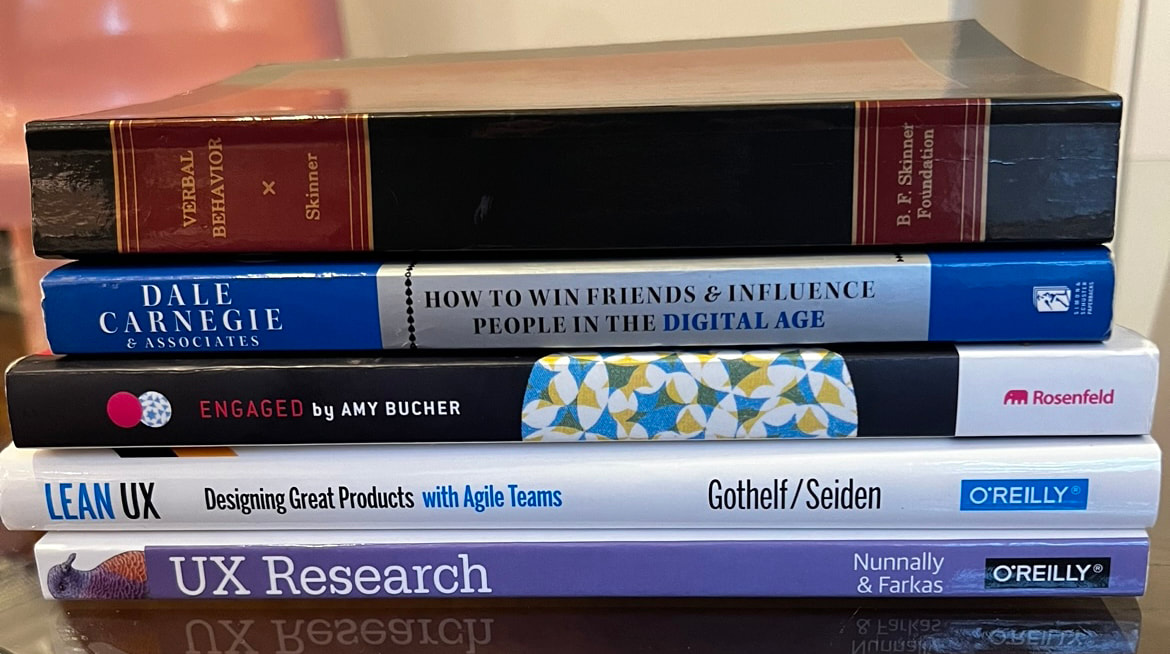
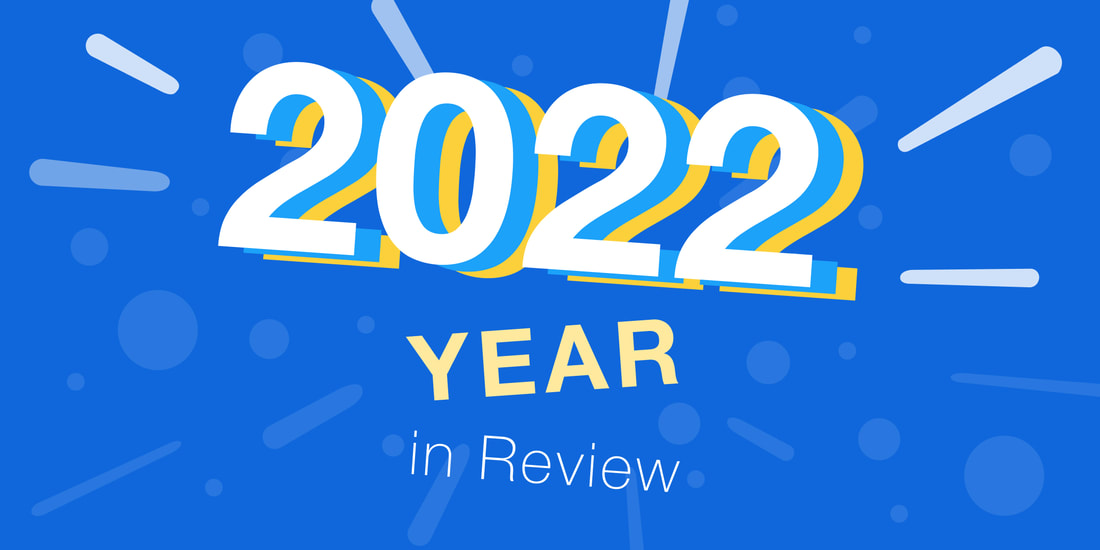
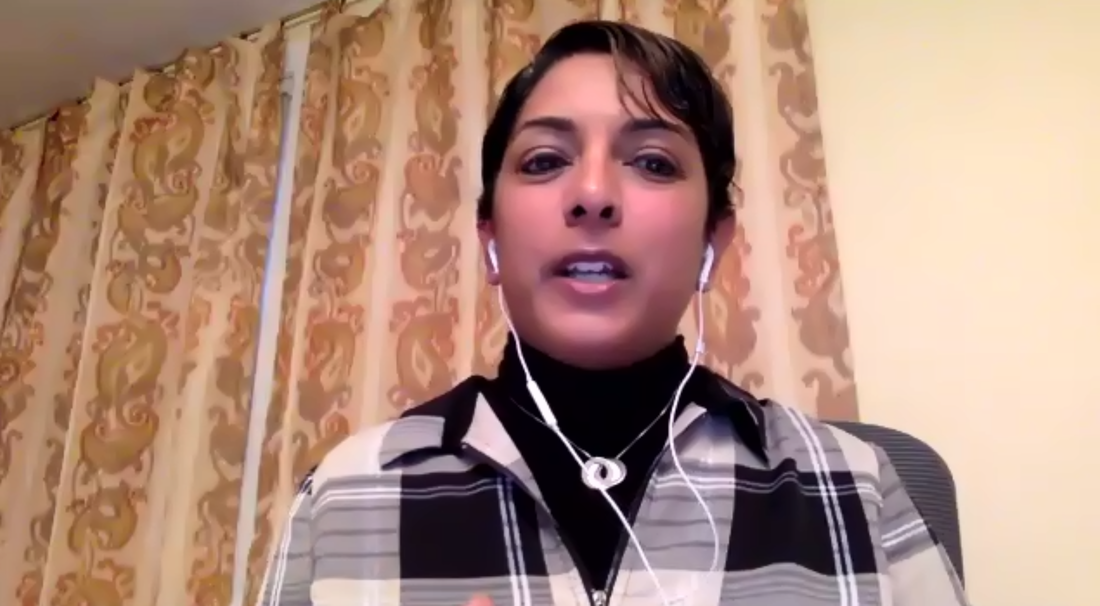
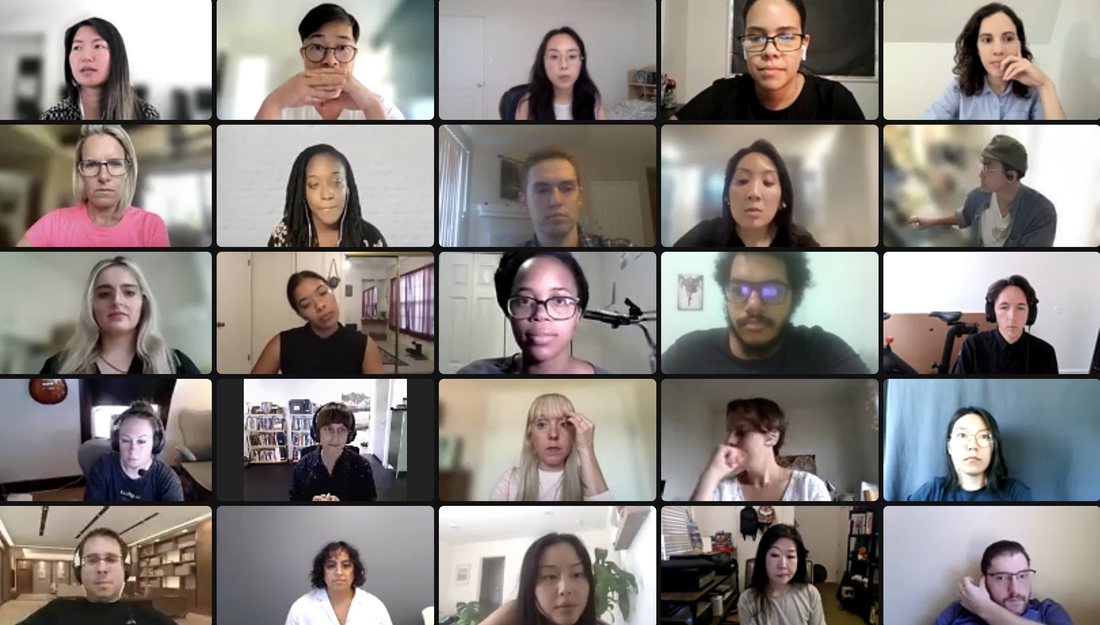
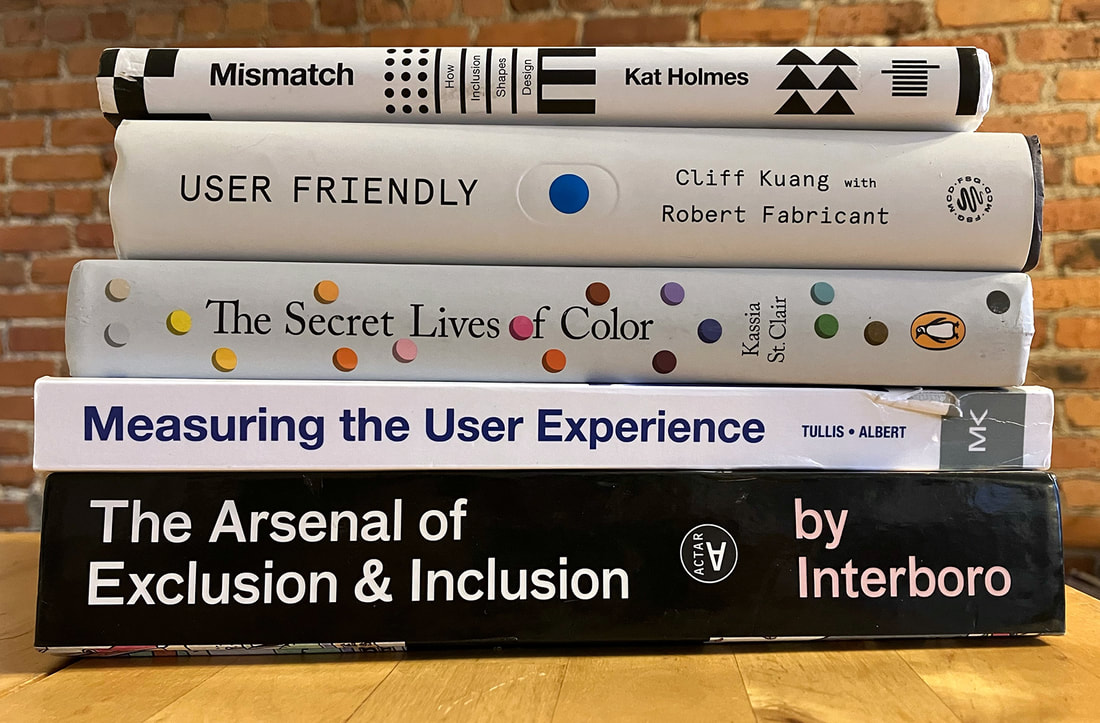
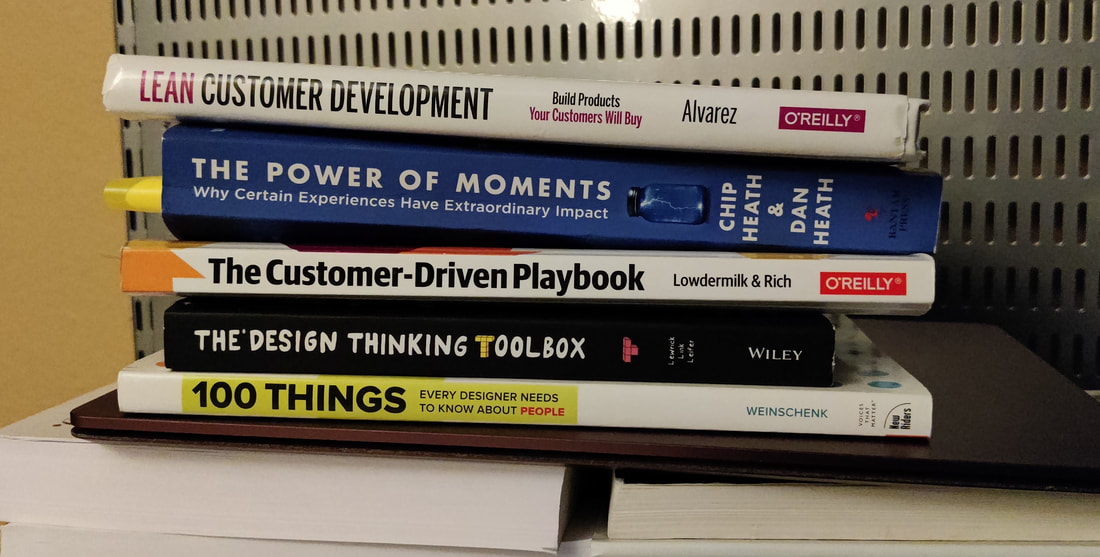

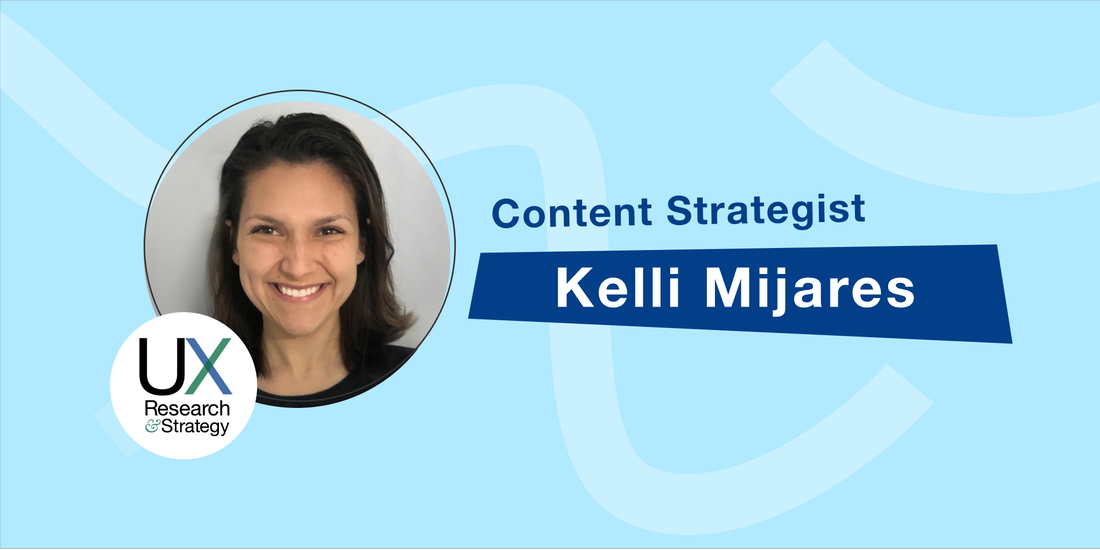
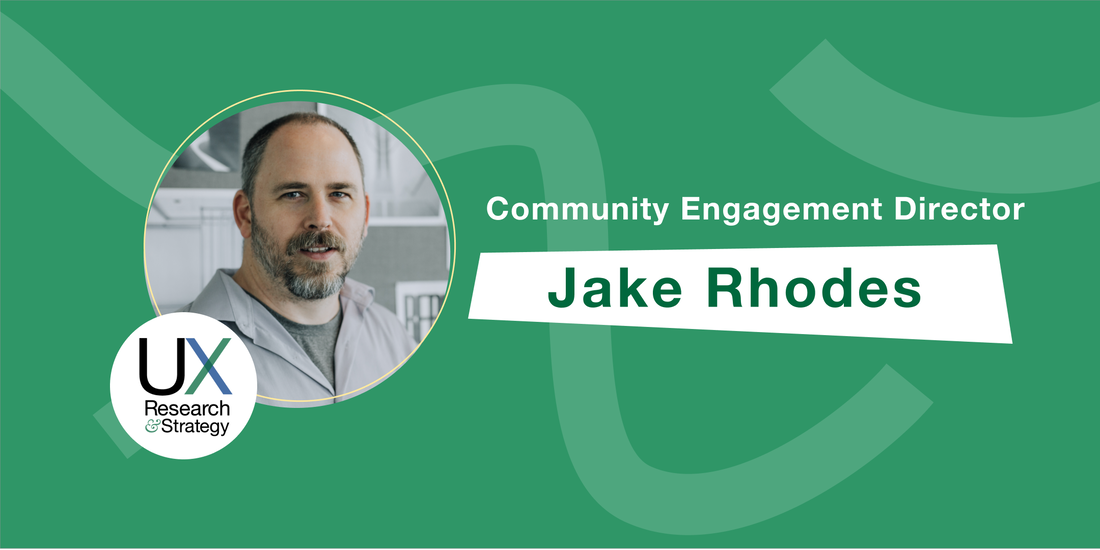
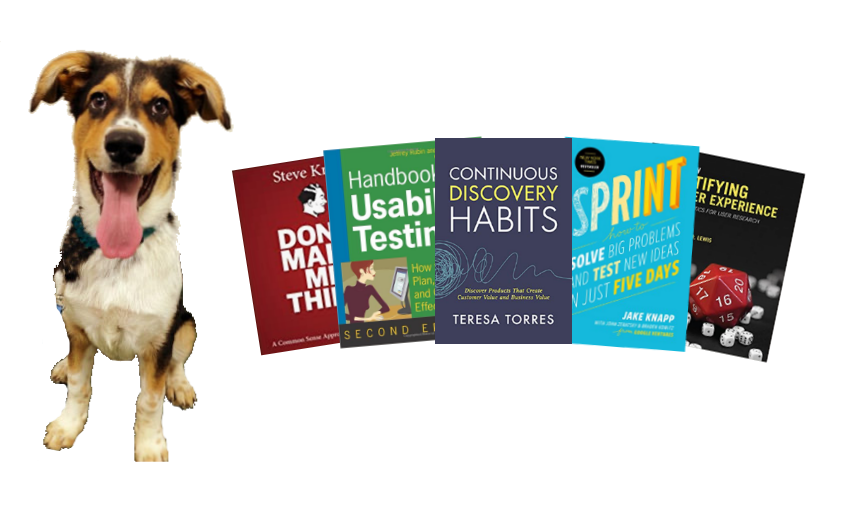
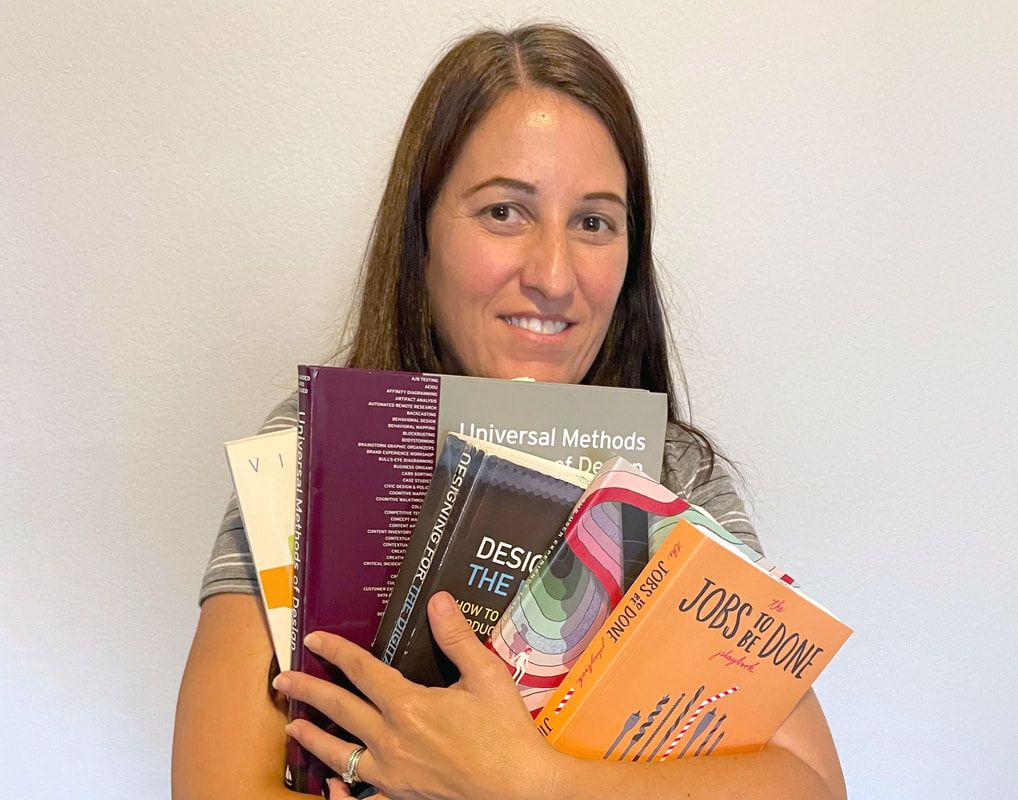
 RSS Feed
RSS Feed
